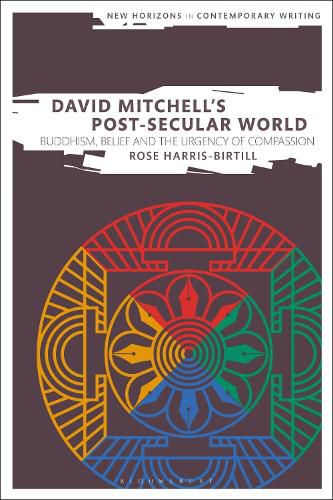Readings Newsletter
Become a Readings Member to make your shopping experience even easier.
Sign in or sign up for free!
You’re not far away from qualifying for FREE standard shipping within Australia
You’ve qualified for FREE standard shipping within Australia
The cart is loading…






Since the publication of Ghostwritten (1999), David Mitchell has rapidly established himself as one of the most inventive and important British novelists of the 21st century. In this landmark study, Rose Harris-Birtill reveals the extent to which Mitchell has created an interconnected fictional world across the full run of his writing. Covering Mitchell’s complete fictions, from bestselling novels such as Cloud Atlas (2004), The Bone Clocks (2014) and number9dream (2001), to his short stories and his libretti for the operas Sunken Garden and Wake, this book examines how Buddhist influences inform the ethical worldview that permeates his writing. Using a comparative theoretical model drawn from the Tibetan mandala to map Mitchell’s fictional world, Harris-Birtill positions Mitchell as central to a new generation of post-secular writers who re-examine the vital role of belief in galvanizing action amidst contemporary ecological, political and humanitarian crises.
David Mitchell’s Post-Secular World features two substantial new interviews with the author, a chronology of his fictions and a selected bibliography of important critical writings on his work.
$9.00 standard shipping within Australia
FREE standard shipping within Australia for orders over $100.00
Express & International shipping calculated at checkout
Since the publication of Ghostwritten (1999), David Mitchell has rapidly established himself as one of the most inventive and important British novelists of the 21st century. In this landmark study, Rose Harris-Birtill reveals the extent to which Mitchell has created an interconnected fictional world across the full run of his writing. Covering Mitchell’s complete fictions, from bestselling novels such as Cloud Atlas (2004), The Bone Clocks (2014) and number9dream (2001), to his short stories and his libretti for the operas Sunken Garden and Wake, this book examines how Buddhist influences inform the ethical worldview that permeates his writing. Using a comparative theoretical model drawn from the Tibetan mandala to map Mitchell’s fictional world, Harris-Birtill positions Mitchell as central to a new generation of post-secular writers who re-examine the vital role of belief in galvanizing action amidst contemporary ecological, political and humanitarian crises.
David Mitchell’s Post-Secular World features two substantial new interviews with the author, a chronology of his fictions and a selected bibliography of important critical writings on his work.